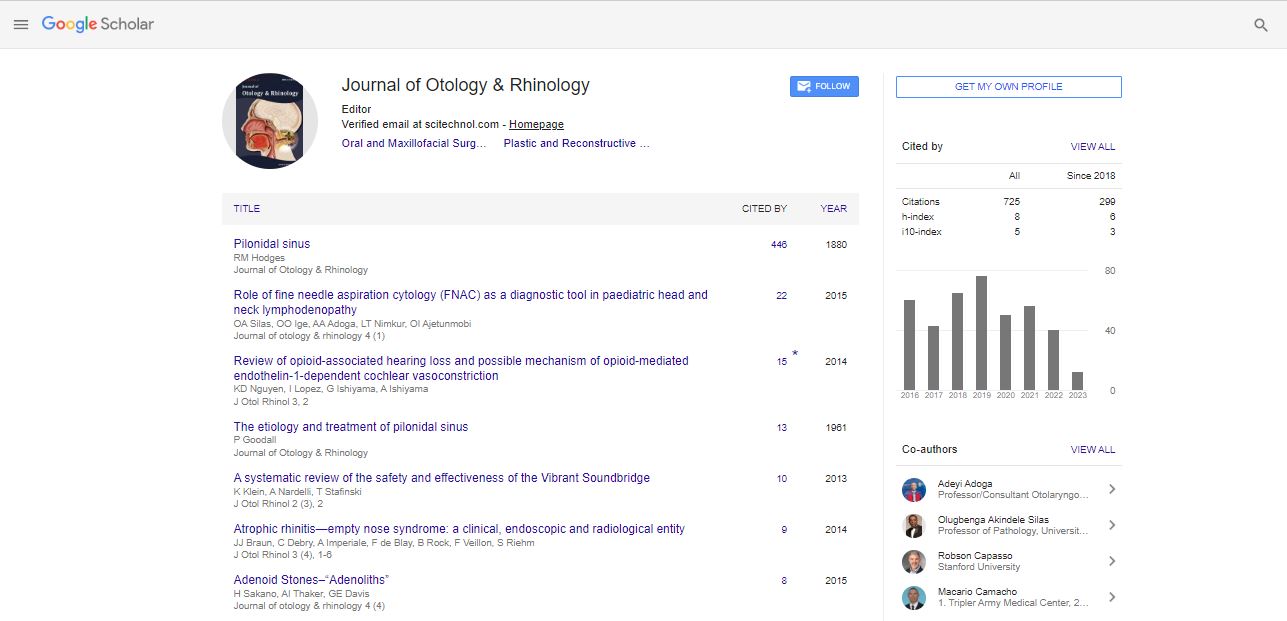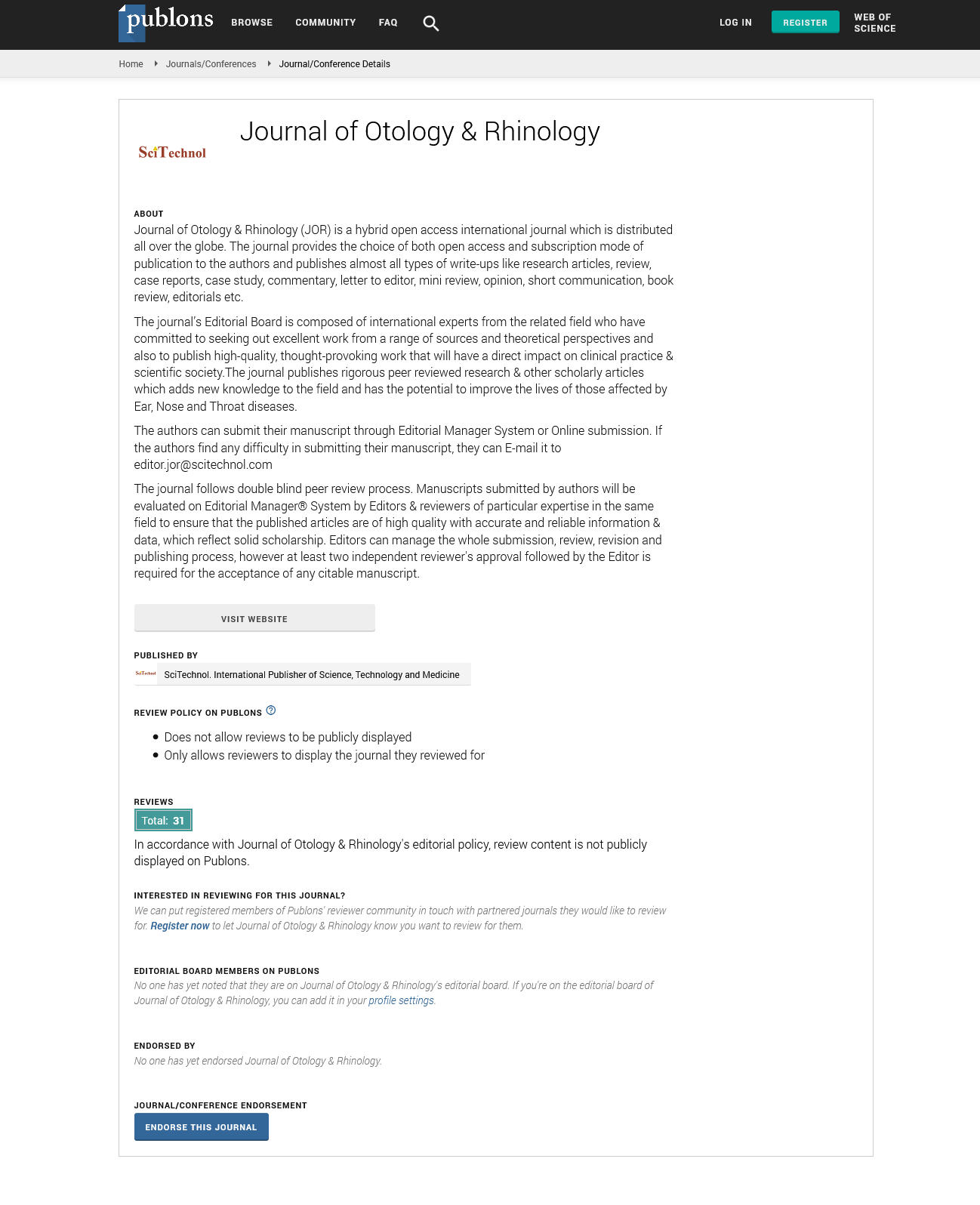Research Article, J Otol Rhinol S Vol: 0 Issue: 1
A Simple Voice Training Method for Inflammatory Laryngeal Diseases by Relying on Abdominal Respiration
| Takeshi Kusunoki1*, Toshio Monjyu2, Mitsuhisa Fujimaki1 and Katsuhisa Ikeda1 | |
| 1Department of Otorhinolaryngology, Juntendo University Faculty of Medicine, Tokyo, Japan | |
| 2Monjyu Voice Clinic, Osaka, Japan | |
| Corresponding author : Takeshi Kusunoki Department of Otorhinolaryngology, Juntendo University School of Medicine, 2-1-1 Hongo, Bunkyo-ku, Tokyo, 113-8421, Japan Tel: + 81-3-5802-1229, Fax: +81-3-5840-7103 E-mail: ttkusunoki001@aol.com |
|
| Received: November 18, 2014 Accepted: March 10, 2015 Published: March 14, 2015 | |
| Citation: Kusunoki T, Monjyu T, Fujimaki M, Ikeda K (2015) A Simple Voice Training Method for Inflammatory Laryngeal Diseases by Relying on Abdominal Respiration. J Otol Rhinol S1:1. doi:10.4172/2324-8785.S1-015 |
Abstract
Background: It has been suggested that doctors should perform voice therapy in cooperation with speech therapists, but there are few speech therapists in Japan. Therefore, at our hospital otorhinolaryngology out-patient clinic, voice therapy is performed by a single doctor (first author) using a simple method of voice training that relies on the abdominal type of respiration.
Voice therapy is considered the first choice for vocal fold nodules. We tried this voice training method for vocal fold polyps and laryngeal granulomas with resistance to proton pump inhibitor (PPI) as well as vocal fold nodules.
Methods: At our hospital otorhinolaryngology out-patient clinic, voice therapy was performed using a simple method of voice training that relies on abdominal respiration for inflammatory laryngeal diseases.
Results: All 16 cases with vocal fold nodules showed disappearance of symptoms by our method of voice training. Nine of 12 cases with vocal fold polyps and 12 of 15 cases with laryngeal granulomas showed disappearance or reduction of symptoms.
Conclusions: These results suggested that our method of voice training could be useful for some cases of both vocal fold polyps and laryngeal granulomas in the same way as vocal fold nodules.
 Spanish
Spanish  Chinese
Chinese  Russian
Russian  German
German  French
French  Japanese
Japanese  Portuguese
Portuguese  Hindi
Hindi 


